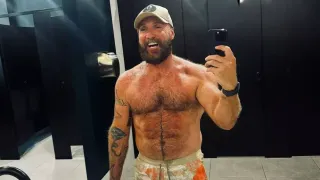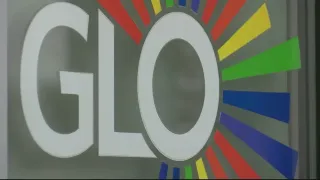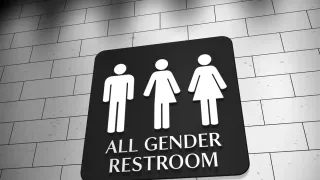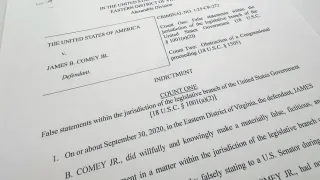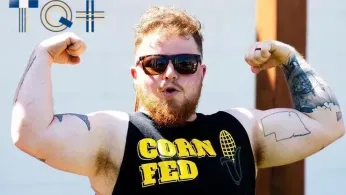
5 hours ago
Trans Athlete Maxwell Poessnecker Breaks Fitness Barriers
READ TIME: 3 MIN.
Maxwell Poessnecker’s recent interview with Queerty brings a spotlight to the unique challenges faced by transgender athletes in mainstream fitness environments and the broader journey of self-acceptance and visibility within the LGBTQ+ community . As a transgender man, Poessnecker recounts his ongoing pursuit of a safe, welcoming space where his identity is respected, his achievements celebrated, and his presence normalized.
“I never felt safe or seen or welcomed in stereotypical gym spaces that are full of 'meatheads,'” Poessnecker told Queerty, speaking frankly about his discomfort in fitness environments dominated by rigid expectations of masculinity and physical prowess . His experience reflects a broader issue: transgender people often encounter exclusion, misunderstanding, or outright hostility in athletic spaces, where traditional gender norms can be especially pronounced.
Poessnecker’s journey into weightlifting was not only about physical strength but also about reclaiming autonomy and rewriting what it means to be a man. In recounting his transition, Poessnecker emphasized the emotional and psychological impact of finding a supportive community, even if it meant seeking out alternative venues or creating his own safe spaces for training. The importance of inclusive sports environments has been documented by organizations such as the Human Rights Campaign and Athlete Ally, which advocate for policies that protect transgender athletes from discrimination and promote acceptance in all levels of sport .
Outside the gym, Poessnecker’s story is equally compelling. He describes raising chickens and connecting with rural life as integral to his sense of self . In a separate oral history, Poessnecker discussed the complex interplay between masculinity, family relationships, and growing up in rural Nebraska, highlighting the unique pressures and joys of forging a transgender identity in a small-town setting .
For many LGBTQ+ people living in rural areas, visibility is often a double-edged sword—offering both the possibility of connection and the risk of exposure to discrimination. Poessnecker’s openness about his life, including the everyday act of caring for animals, helps demystify transgender experiences and underscores the diversity of LGBTQ+ identities beyond urban stereotypes.
Poessnecker’s reflections on athletic identity intersect with larger debates about transgender inclusion in sports, which have intensified in recent years as policymakers and advocacy groups address access, equity, and safety . By sharing his story, Poessnecker adds a human dimension to these policy conversations, reminding audiences that athletic participation is not merely about competition—it is also about health, community, and self-esteem.
Transgender athletes have faced growing scrutiny and sometimes backlash, particularly regarding participation in gendered sports categories. Organizations such as GLAAD and Outsports have emphasized the importance of centering transgender voices in discussions about athletic fairness, highlighting lived experiences and the ongoing need for policy reform that prioritizes dignity and respect . Poessnecker’s candid account provides a valuable counterpoint to narratives that often reduce transgender athletes to abstract controversies rather than fully realized individuals.
The significance of Poessnecker’s interview extends beyond personal biography—it serves as a call for greater representation and understanding of transgender people in all facets of life. Visibility, as Poessnecker demonstrates, is both an act of courage and a pathway to change. By articulating the realities of his journey, from the gym to the chicken coop, Poessnecker encourages other transgender people to seek spaces where they are affirmed, and challenges allies to foster environments marked by empathy and inclusion.
The broader LGBTQ+ community benefits from stories like Poessnecker’s, which highlight the intersectionality of identity and the varied paths toward self-acceptance. As advocacy groups continue to push for inclusive policies and culture shifts, individual narratives remain crucial for building awareness and driving progress .
Maxwell Poessnecker’s interview with Queerty is a reminder that visibility and authenticity are essential for the well-being of transgender people, both within and beyond athletic contexts. By sharing his experiences, Poessnecker not only affirms his identity but also helps pave the way for a more inclusive future—one in which all athletes, regardless of gender identity, can find safety, belonging, and respect .

